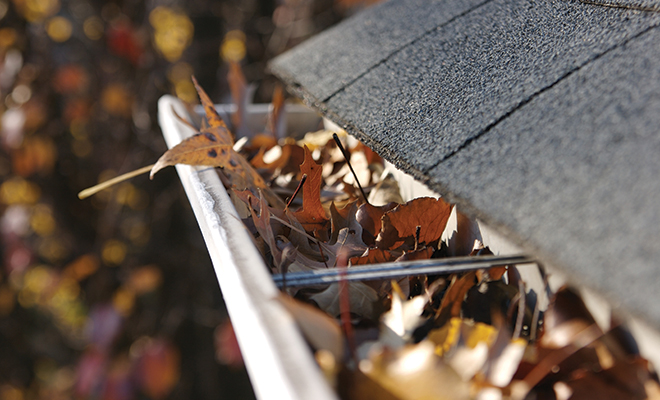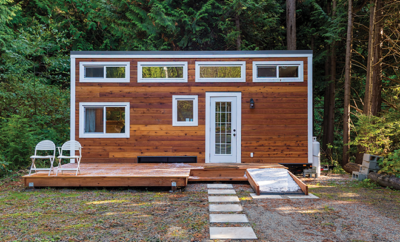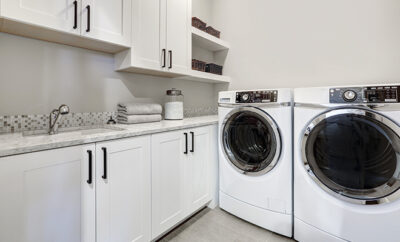
“Fix it until it breaks!”
That’s said frequently in the military to refer to preventive maintenance. Military equipment cannot afford mechanical difficulties, especially during conflicts, so work to keep parts and pieces functioning is continuous. But preventive maintenance is also critical to you and your family when it comes to keeping your home in top shape and averting expensive problems that you have to scramble to repair.
“It’s important homeowners have a checklist of items to ensure their house is maintained in excellent condition. This can be broken down into annually, seasonally, monthly and weekly lists,” noted Dean McDermott, long-time maintenance manager for several Fortune 500 companies. “One thing that can bring trouble to a homeowner on a year-round basis is moisture, which can lead to wood rot, rust, mildew, mold and more bad news. Wet wood not only decomposes, but it can attract pests as well.”
Ensuring rain, snow and humidity don’t work their way into your home is one of the most important segments of a preventative maintenance plan. Frequently check your rain gutters to direct water away from the foundation. Clear out leaves at least twice a year. Every few months, climb into your attic to inspect for roof leaks that allow moisture to come through your walls or ceilings.
Even the best-laid plans may not compensate for things out of your control such as an emergency or natural disaster, but having a strategy in place for the fallout from those events can greatly assist in your recovery. Train each of the adults in your home to know where the main controls are located so they can be turned off or on as the situation demands. Also, have a wrench close by so precious time isn’t wasted searching for the right tool. Ensure adults know the locations of the main electrical fuse or breaker box, heating fuel main shutoff, main water shutoff and water shutoff valve for toilets, sinks and washing machine. Have fire extinguishers visible and at least one in the kitchen and others throughout the house. Many experts say at least one per floor, but do your research to determine your needs. At least once a month, check to see if they’re charged and ready for operation, and everyone in the house should know how to use them.
“You should also have a disaster preparedness plan for your household. Establish a meeting place outside to ensure you’ve made it out of the house,” commented Dean. “Consider setting a spot outside of the neighborhood if a community disaster occurs such as tornado, flooding, high winds, earthquake or hazardous waste accident. Make sure everyone in the family knows how to connect if you get separated.”
Dean went on to add that contact lists should include an out-of-the-area relative or close friend you would notify that your family is secure. Facebook posts will allow you to declare that you are safe, but it makes sense to call someone directly who can then pass the word for you. Think about creating a disaster survival kit filled with supplies such as water; canned meats, vegetables and fruit; a first-aid kit that includes prescriptions; sleeping bags; clothing and footwear for each person; battery-powered radio, flashlight and extra batteries. If you have special needs such as baby food, contact lens solution, diapers or other necessities, make sure you have those in your kit. Eating utensils, paper plates, can opener, matches, toilet paper, soap, personal hygiene items, garbage bags, compass, plastic sheeting, bucket with lid and bleach should be included.
On an annual basis, walk around your home and check for cracks in brickwork or stucco and touch up the paint. Look for insect infestations such as carpenter ants and termites. Consider a yearly contract with a pest control professional. Don’t forget to drain your water heater of solids at the bottom and check the pressure valve. Think about re-caulking sinks, showers and tubs. Clean out your clothes dryer vent and hose for lint buildup. Schedule a roofing professional to check for leaks, loose shingles or broken tiles, and have your chimney cleaned.
“Some preventive maintenance tasks must be completed by an expert on a scheduled basis,” remarked Dean. “Be proactive and inspect for damage or wear to key areas of your home and take the necessary action. According to founding father Benjamin Franklin, an ounce of prevention is worth a pound of cure, and that’s especially true when it comes to preventive maintenance for your home.”
It’s important you strategize and develop your own personalized maintenance plan. No one knows your home or your household needs better than you. Invite the family to sit down around the table and make suggestions, and don’t forget to train them. Fixing things before they break is not only good for the military, it’s good for your loved ones as well. ■
Source: diynetwork.com.







